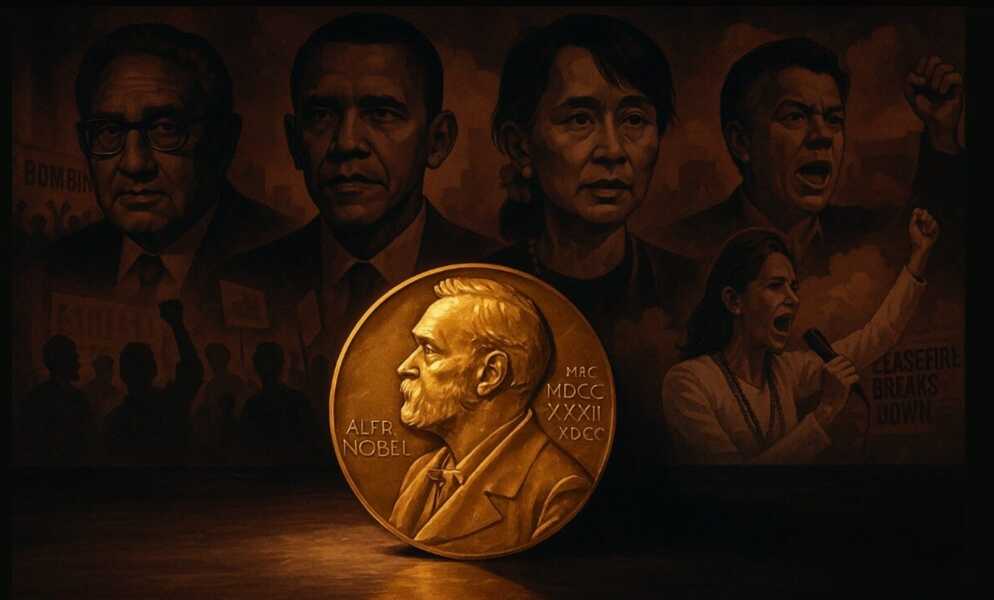Article Today, Hyderabad:
The Nobel Peace Prize has once again become a subject of global controversy. The 2025 award to Venezuela’s opposition leader María Corina Machado has drawn criticism from several quarters, with observers alleging that the Norwegian Nobel Committee is increasingly reflecting Western political agendas. The decision has revived old debates about ideological bias and selective recognition in the history of the Peace Prize.
A Controversial Choice
Ms. Machado, known for her staunch opposition to Venezuela’s socialist government, has long enjoyed the support of Western nations, including the United States. Her selection has been seen by critics as an endorsement of anti-government movements aligned with U.S. foreign policy interests. Many analysts argue that the award legitimises external interference under the pretext of promoting democracy and human rights. The controversy has highlighted the growing overlap between international politics and the recognition of humanitarian work.
Gandhi’s Rejection and Historical Irony
The latest decision has also reignited discussions on the Nobel Committee’s refusal to honour Mahatma Gandhi, despite five nominations between 1937 and 1948. Historians have noted that political pressures during the British colonial era influenced the committee’s choices. After Gandhi’s assassination in 1948, the committee cited procedural reasons to cancel the award that year, claiming it could be given only to living individuals. Ironically, figures such as Adolf Hitler were once considered for nomination, deepening scepticism about the committee’s neutrality.
A Pattern of Political Selections
The history of the Nobel Peace Prize has long been contested. Critics point out that the award has often gone to political figures rather than peace activists. Past recipients include U.S. President Woodrow Wilson, who led his country into war; Henry Kissinger, associated with the Vietnam conflict; and Barack Obama, who authorised increased military deployment in Afghanistan. The inclusion of Ms. Machado, who has openly supported U.S. sanctions and backed Israeli military actions, has reinforced perceptions that the prize rewards political loyalty rather than genuine peace efforts.
Global Reactions and Accusations
Russian President Vladimir Putin was among the first world leaders to condemn the decision, calling it evidence of the Nobel Committee’s loss of moral credibility. Analysts observed that while former U.S. President Donald Trump’s nominations for peace efforts in the Middle East were dismissed, an anti-socialist figure was chosen instead. The committee’s clarification that Mr. Trump’s nominations were received after the deadline has done little to quell suspicions. Critics maintain that the award now serves as an instrument of geopolitical messaging.
Questions Over the Prize’s Purpose
The Nobel Peace Prize, once seen as a moral compass of global conscience, now faces accusations of partiality and political manipulation. By honouring leaders aligned with Western policies while overlooking icons of non-violence such as Gandhi, the award’s credibility has come under strain. Observers warn that if the committee continues to prioritise ideological alignment over universal humanitarian values, the Peace Prize risks losing the moral authority that once defined its legacy.



